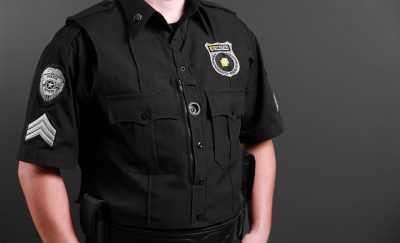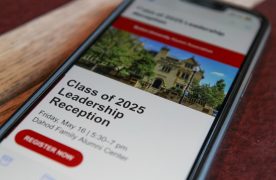
By early 2019, 400 of the 2,100 Boston Police Department officers could be equipped with body cameras, but City officials have not announced an exact date that they would be implemented.
Following a several-year campaign by activist organizations, including the Boston Police Camera Action Team, the Boston City Council unanimously approved the city budget for fiscal year 2019 on June 27, including $2 million in funding for the body camera program at the BPD.
According to an Aug. 27 press release from Mayor Martin Walsh’s office, the plan builds on the mayor’s commitment to public safety and healthy relationships between communities and the police.
A 2017–2020 contract with the Police Patrolmen’s Association, the union that represents most BPD officers, states that additional negotiations between the City and the union can take place in the event that the City wants to extend the pilot body camera program to the rest of the force.
The BPD and the Boston Police Patrolmen’s Association did not respond to multiple requests for comment.
The $2 million set aside for fiscal year 2019 would cover up to 400 cameras, according to the press release from Walsh’s office
Daniel Hallion, 30, of Brighton, said he thinks the program is too expensive and that the money could be more useful in other projects.
“I think $2 million could probably be allocated to something better,” Hallion said. “I think they could find a better use …”
While the City has not announced when the use of body cameras will begin, Axon, a body camera manufacturer, announced in a press release on Sept. 20 that it was working with the City of Boston and would begin to ship cameras in January 2019.
Jack McDevitt, a Northeastern University professor of criminology and racial justice, said body camera programs around the country are expensive because of the cost of storing video data.
“It’s expensive everywhere,” McDevitt said. “It’s not just Boston, it’s everywhere, and it’s not the cameras that is the chief expense, it’s storing the videos.”
McDevitt said another issue is that videos from body cameras require editing to protect the identities of people who are not directly involved with police activity.
“If somebody wants a video, let’s say someone from the media asks for a video, then you have to go in, and, you know, blur the faces of anyone not involved in it,” McDevitt said. “And, that’s, right now, a fairly time-consuming exercise.”
Michel Crump, 56, of Lynn, said he does not think all officers would need to wear body cameras. He said only the officers working in sensitive areas should be required to wear them.
“I think you should have them when you are dealing with high school students and children,” Crump said. “It’s just another record to keep. I believe there are locations where you should place them. I don’t think everyone needs to have them.”
Shaun Crewe, 40, of the South End, said he thought the BPD should take its time implementing the program to prevent possible errors.
“I think that way, to take their time on things, that way they wouldn’t have to cut the program out and then take a few more years before they bring [it back],” Crewe said. “You know, anything can happen.”











